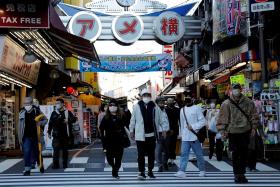Hundreds of hikers still stranded after Lombok quake
LOMBOK, INDONESIA: Hours before Ms Siti Nur Iesmawida Ismail was tragically killed in the earthquake that struck Lombok, she had successfully climbed Mount Rinjani, the second highest volcano in Indonesia.
The 30-year-old from Melaka had captured the moment with a picture of herself at the summit, captioned "I DID IT!!".
According to reports, Ms Siti was crushed by a pillar. She died at 8am on arrival at a local clinic.
Six other Malaysians were injured in the 6.4-magnitude earthquake that struck just before 7am local time on Sunday.
Businessman Khairul Azim, 32, said although he did not personally know the victim, he met the group she was in when they were trekking up Mount Rinjani.
He said the earthquake struck when his group were at the base camp while Ms Siti's group was at a homestay, several kilometres away.
"We were lucky because we were staying in tents and not in a building," he said.
More than 500 hikers and their guides remain stranded after landslides, a national park official said yesterday.
Helicopters and rescue teams on foot have been deployed to scour the slopes of Mount Rinjani, which is crisscrossed with hiking routes popular with tourists.
"There are still 560 people trapped. Five hundred are in the Segara Anakan area and 60 are in Batu Ceper," said the head of Rinjani National Park Sudiyono.
Sixteen people were killed and hundreds of buildings were destroyed by the quake, which sent people running from their homes early Sunday morning.
Rising 3,726m above sea level, Mount Rinjani is a favourite among sightseers keen to take in its expansive views.
Hiking trails on the mountain were closed following the quake due to fear of further landslides.
The epicentre of the earthquake was 50km north-east of Lombok's main city Mataram, the United States Geological Survey said, far from the main tourist spots on the south and west of the island. - THE STAR, AFP
Get The New Paper on your phone with the free TNP app. Download from the Apple App Store or Google Play Store now


